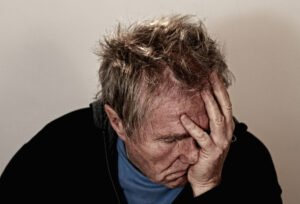Geriatric Depression: Don’t We All Feel Sad, Sometimes? By Paul Susic Ph.D. Licensed Psychologist
An overview of geriatric depression:
Geriatric depression appears in many forms. Although everyone feels sad sometimes, which is a natural response to negative circumstances and loss, ultimately, the feelings associated with bad experiences are qualitatively very different from geriatric depression. While it may be similar in that it can initially arise as a result of a sad event or circumstance, or specific medical condition that is not always the case. Sometimes geriatric depression has been known to occur for no apparent reason. Among the senior population, psychologists frequently see depression occurring as a result of physical illness, or merely at the same time, a term that we refer to as comorbidity.
An important factor to understand about geriatric depression as well as depression in general is that it appears very differently to different people. One person may have a sense of “feeling blue” as they try to conduct their normal everyday activities and another person may feel a very heavy feeling that makes it almost impossible for them to even get out of a chair. This heavy feeling of despair can become absolutely incapacitating. Unfortunately, it could even become much worse in that this overwhelming sense of despair and feeling of worthlessness could even lead your loved one to even turn to suicide for relief.
You should never underestimate the incapacitating feelings associated with geriatric depression. In my clinical work, I’ve heard many people over the years blame seniors for their conditions as if they did not have a strong enough will to relieve their suffering on their own. The blaming actually makes it much worse as people then start feeling responsible for their condition. I don’t believe that many people choose to feel bad. And certainly, it doesn’t make the situation better for people to feel like it is their fault.
The elderly are frailer and their bodies are more susceptible to a variety of circumstances and conditions which contribute to their geriatric depression. There are many physical conditions including strokes, Parkinson’s disease, and multiple sclerosis which seem to predispose seniors and others to depression. Also, medications are infamous for increasing the level of depression among the elderly. In addition to these comorbid medical conditions which seem to predispose or exacerbate the experience of depression among the elderly, geriatric depression is frequently precipitated by changing life circumstances as individuals proceed into their senior years.
The most prominent life circumstance that contributes to geriatric depression is the experience of loss. As seniors are no longer able to maintain their homes for example, they are frequently required to move into nursing facilities, move in with family members or otherwise unwillingly change their living circumstances. This is a tremendous loss for them to endure. Loss is also common in many other forms including loss of physical mobility, driving privileges and the loss of finances and the status of working or having a profession. When we do not choose circumstances but are forced into them as result of the aging process, this experience frequently leads to a feeling of loss..
While statistics very significantly it is believed that geriatric depression is experienced by approximately one out of every six older people. Some of these people have a recurrence of depression experienced earlier in their life. For others, their first clinically diagnosed emotional problem arises in the form of geriatric depression.



